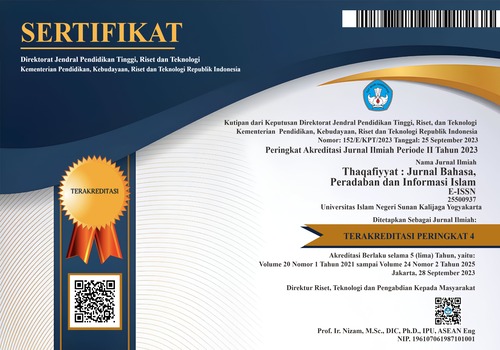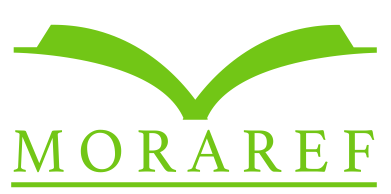PAGELARAN WAYANG PURWA SEBAGAI MEDIA PENANAMAN NILAI RELIGIUS ISLAM PADA MASYARAKAT JAWA
Abstract
Purwa Puppet is one form of Indonesian traditional classical cultures, which has evolved over the centuries. Puppet art show not only functions as a decorative art and an entertainment but also contains a lot of exemplary noble values. Puppet art show is a mirror of human life. Human dispositions are portrayed through puppets. This puppet art in its development also became an effective means of spreading Islam in Java in its early years. The puppet, strongly influenced by Hindu and animism, was modified in such a way by Wali Songo that it became a form of performance that was full of Islamic religious values. This paper aimed at determining the extent to which puppet performances can be used as a medium in conveying Islamic religious values in the archipelago in general, and in Java in particular.
Keywords: puppets, values, Islam, Java
Downloads
References
Downloads
Published
Issue
Section
License
Authors who will publish with this journal agree to the following terms:
- Thaqafiyyat: Jurnal Bahasa, Peradaban dan Informasi Islam publishes all articles entirely in full text.
- It is permissible for readers to download and to use it for scientific purposes and scientific dissemination.
- Authors retain copyright and grant the journal right of first publication with the work simultaneously licensed under a Creative Commons Attribution License that allows others to share the work with an acknowledgement of the work's authorship and initial publication in this journal.
- Authors are able to enter into separate, additional contractual arrangements for the non-exclusive distribution of the journal's published version of the work (e.g., post it to an institutional repository or publish it in a book), with an acknowledgement of its initial publication in this journal.
- Authors are permitted and encouraged to post their work online (e.g., in institutional repositories or on their website) prior to and during the submission process, as it can lead to productive exchanges, as well as earlier and greater citation of published work.










